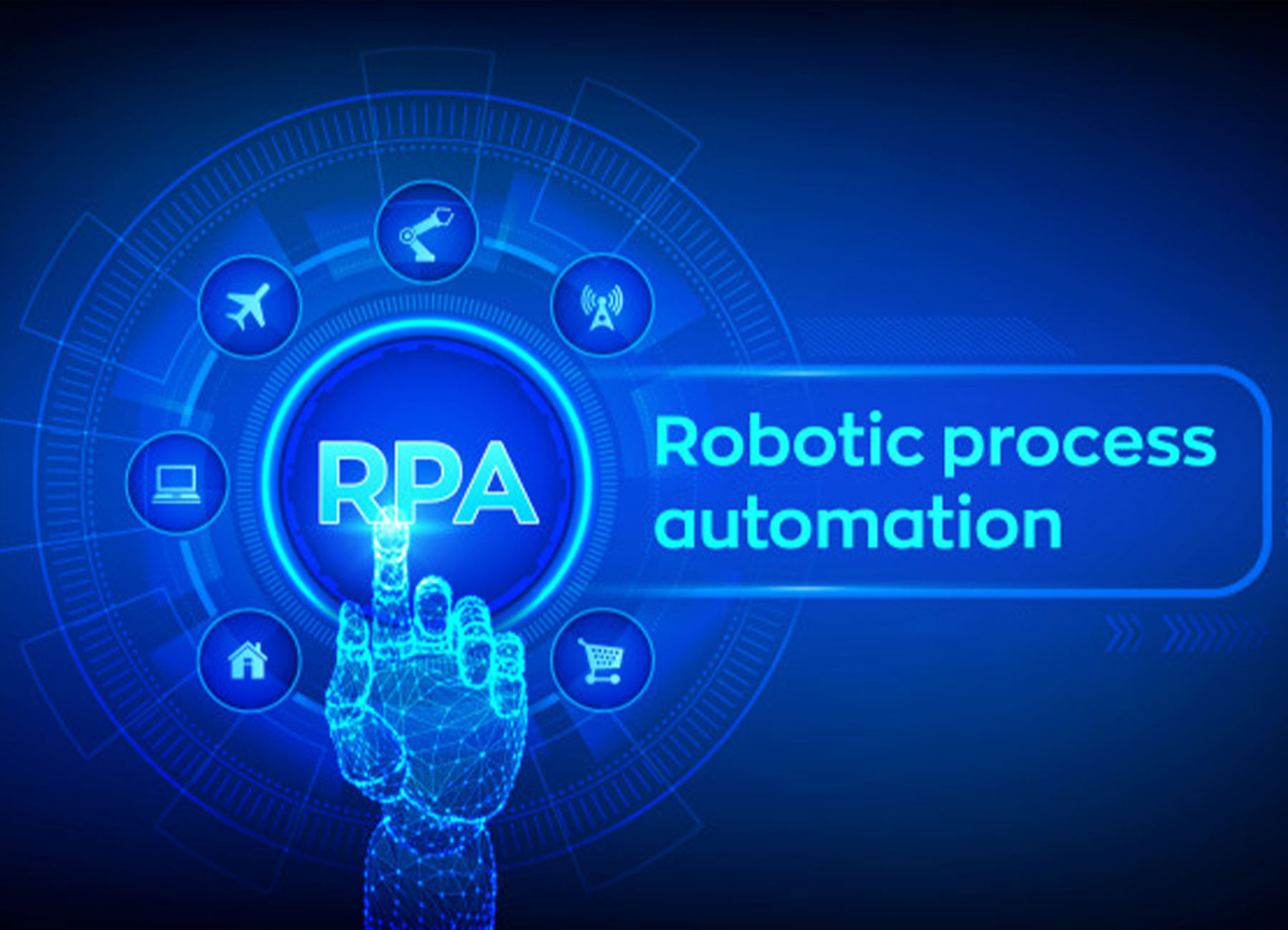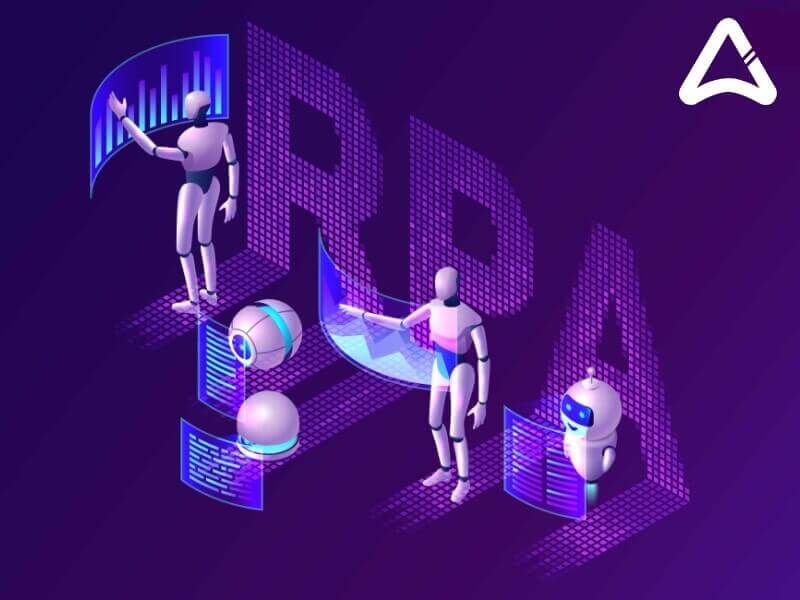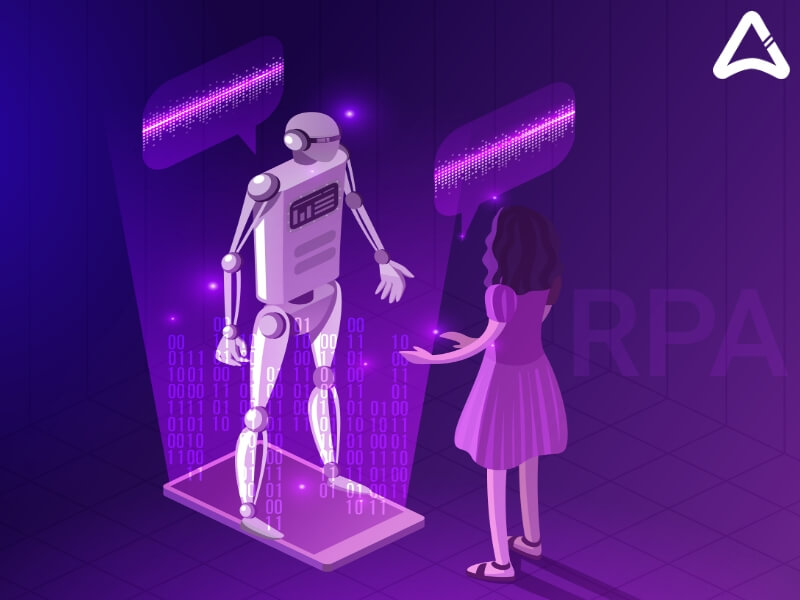As the world moves to use technological variants, automation has also improved its simplifying work. Although the term automation was previously coined, very few understood what it indicated. So what is Robotic Process Automation (RPA) on this blog? Let’s talk about precisely what is RPA and tools or applications of RPA, etc.
What is RPA’ Robotic Process Automation’?
Robotic process automation is the use of practiced computer apps. RPA, known as software robots, to automate repeatable business processes. Just think of a robot sitting in front of a computer and performing the same keystrokes as a person would. As per the Robotic Process Automation Developer, RPA does not involve any physical robots. However, software robots mimic human activities by interacting with applications in the same way they do.
It is working as a virtual business assistant, bots complete tedious tasks, and income-generating tasks. Part of the beauty of robotic process automation technology is that it gives even non-technical employees the tools to configure their software robots. Plus, it helps solve automation challenges.
How Does Robotic Process Automation Works?
Whether RPA uses physical robots or real robots are available to automate tasks has been a question. Well, let me tell you that it is not the replacement of real robots for people. But there is software on the market that allows you to configure workflows to automate your business activities.
Our mobile app developers say that the demand for RPA certification will increase by 120 percent. Due to a lack of experience in the market.
What Are The Applications of RPA?
Many opportunities to implement robotic process automation can be found in various companies. However, several important industries and business functions have a proven track record with RPA technology applications. Here, we are going to mention a list of RPA applications.
RPA in the Healthcare Sector
For healthcare companies, the precision of all internal processes is of fundamental importance. Moreover, the health and well-being of customers depend on them. According to AppStudio Toronto, the world’s largest hospitals use robotic process automation to optimize information management and payment cycles. Plus, it leads to fewer errors and better patient experience.
RPA in Retail Segment
Retail companies are investing heavily in automation to improve customer and employee experiences. Popular RPA applications in the retail industry include fraud detection, warehousing, and order management. Additionally, the RPA application in the retail industry includes customer feedback processing and customer relationship management.
RPA in Financial Services and Banking
Banking was one of the first industries to adopt robotic process automation. Today, many large banks use RPA to automate operations such as anti-money laundering, customer inquiry processing, and KYC account opening and investigation. A lot of tedious rule-based tasks in these processes show the value of automating them quickly.
Other applications of RPA in banking include reconciliations, reporting, and compliance processes.
Robotic Process Automation in Insurance Sector
Insurance is another industry that has many repetitive processes that are suitable for automation. Although it is lagging behind banking in the adoption of RPA, several use cases have already been successfully automated in insurance. Plus, they include various claims processing operations, policy management, regulatory compliance, and more.
What Are The RPA Tools?
Software, such as RPA providers and tools, allows you to configure your tasks to automate them. Today, there are many RPA tools available on the market, but some of the main ones are UiPath, Blue Prism, and Automation Anywhere. Each of these providers has its hits and misses and is used by the industry for various purposes.
What are the Benefits of RPA?
There are several main benefits that a business can gain from robotic process automation.
First, there is no need to waste human brains on tasks that software robots can perform much better, faster, and error-free. That will leave people free to make higher-value contributions to areas such as customer satisfaction, innovations, and scalability.
Second, automation will improve process time and accuracy by eliminating human errors and correcting them. It will also result in better customer experiences, higher NPS, and lower customer simmer.
Summing Up
Robotic process automation enables companies to automate tasks across all systems and applications seamlessly. The main goal of RPA is to replace tedious, repetitive, and error-prone work with the efficiency of virtual automation technology. With 100% productivity and zero errors, RPA has a wide range of applications in various sectors ranging from healthcare to banking. This article explains what RPA is and how you can efficiently execute tedious tasks in an instant.
If you are interested in developing robotic process automation applications, let’s discuss your project with us. Therefore, our developers will help you by providing you with the best RPA development solutions.





